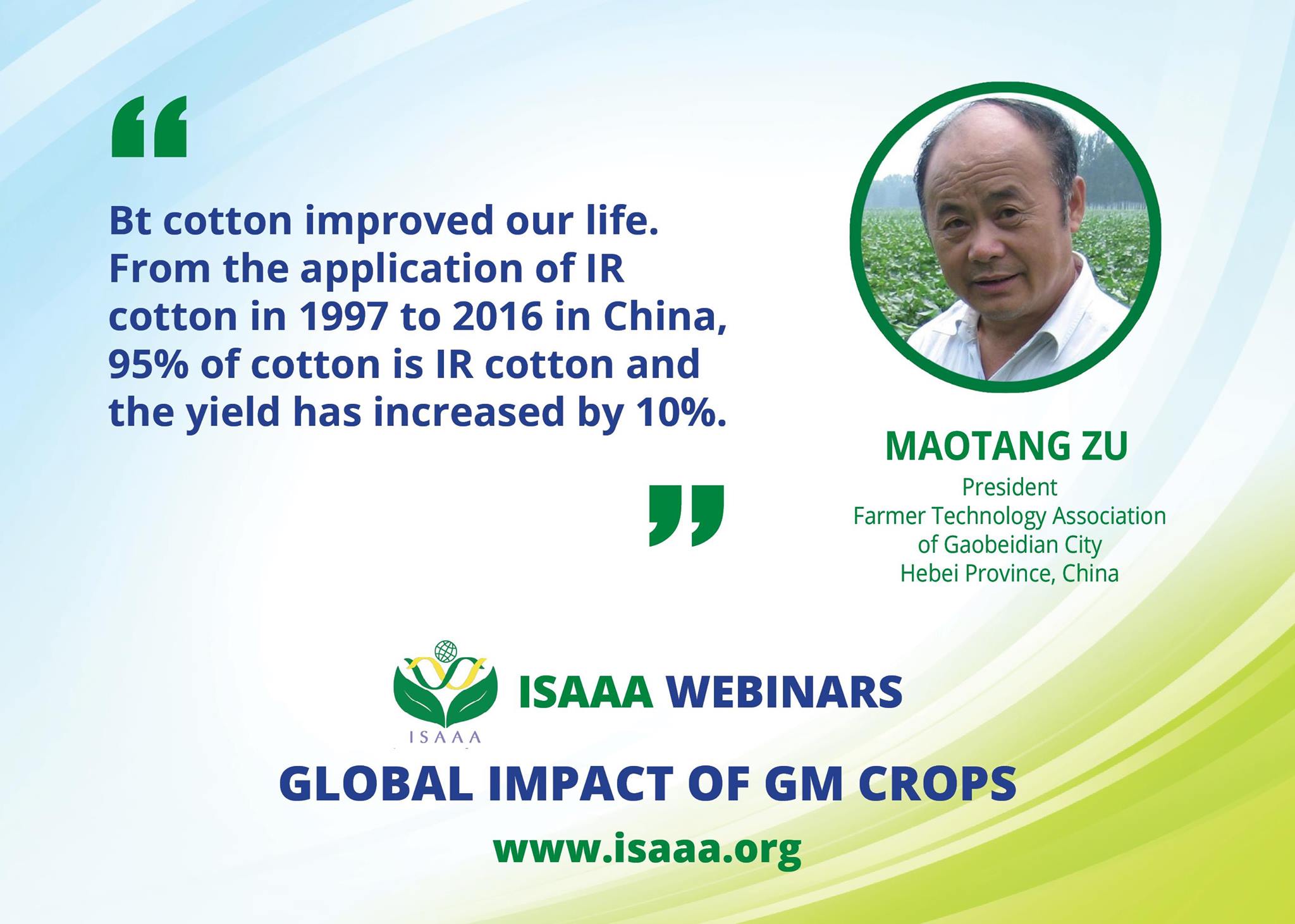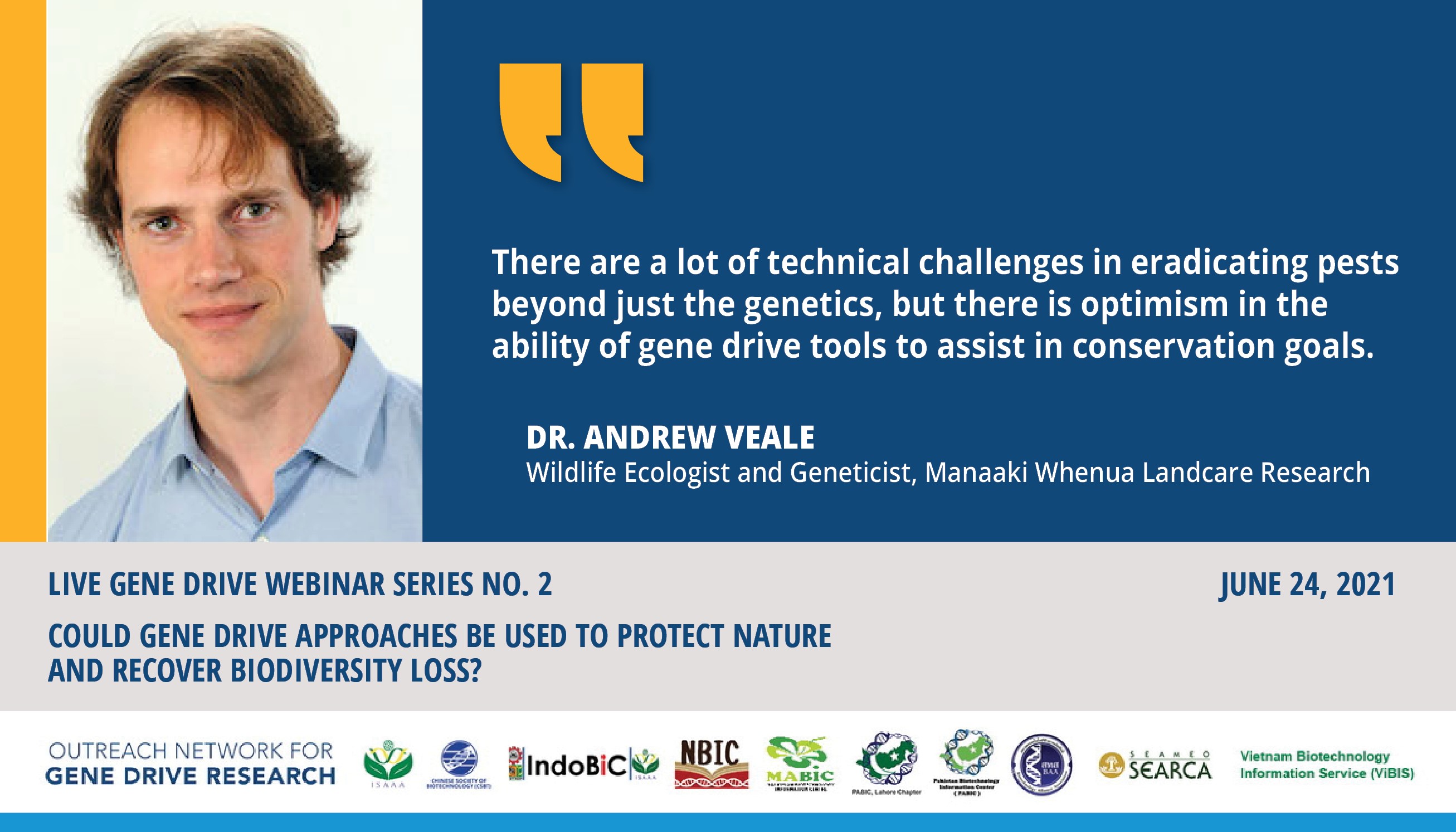ISAAA Webinars Reach 112K in One Year
| |
Through knowledge sharing and capacity building, ISAAA facilitates informed decision-making on the application and adoption of biotechnologies. Together with a network of Biotechnology Information Centers in the developing countries in Asia and Africa and like-minded partners globally, ISAAA is proud to host events that empower biotech innovations and create opportunities for massive learning.
Since the first webinar held in June 2020, ISAAA has reached about 112,000 individuals on various platforms and equipped a wide variety of audiences including scientists, academics, students, and media practitioners. ISAAA hosted a series of webinars on genome editing, GM crop adoption, the impact of biotech crops, animal biotechnology, science communication, and gene drives.

Genome Editing. Genome editing is one of the new breeding techniques that allow scientists to improve the characteristics of living organisms, including plants, animals, and bacteria. ISAAA monitors the advances in genome editing and their implications in food and agriculture. Thus, ISAAA hosted a series of public webinars tackling its healthcare, agricultural, and industrial applications. The regulations surrounding the technology were also tackled with experts from various countries, as well as its implications for bioentrepreneurship and innovation. A total of 15,107 participants attended the genome editing webinar series.
Animal Biotechnology Regulations. Inter-American Institute for Cooperation on Agriculture, United States Department of Agriculture, Virginia Polytechnic Institute and State University, and ISAAA co-organized a webinar series on Regulatory Approaches for Agricultural and Food Applications of Animal Biotechnology. International experts on animal biotechnology were invited to tackle a wide range of topics such as food safety assessments, genome editing regulatory approaches, and environmental safety aspects of regulations for genetically engineered animals for confined use and environmental release. Breakout sessions were also held to synthesize all the key points raised during the sessions. Each session was attended by over 100 participants, with the highest attendance of 174 in one of the sessions. The online workshop is a prelude to an in-person event scheduled in 2021.
Virtual Roadshow on the Impact of GM Crops. In partnership with CropLife Asia and Biotech Information Centers (BICs) in selected Asian countries, ISAAA conducted a series of webinars on the global impact of genetically modified (GM) crops. The webinars, which served as a virtual information roadshow, featured the latest report of PG Economics titled GM Crops: Global Socio-economic and Environmental Impacts 1996-2018 authored by Graham Brookes and Peter Barfoot. For each webinar, Graham Brookes shared the agricultural environmental impact, return on investment for the GM crop farmers, and contribution to global food security of GM crops. The webinars, which were offered for free to all registrants, reached a total of 50,391 attendees, mostly from the scientific community.

Innovative Tools in Crop Breeding. In partnership with the 2Blades Foundation, ISAAA showcased two of the most recent developments in genome editing. Dr. Diana Horvath, President and Director of the 2Blades Foundation, presented the genome-editing tool TALENs, or transcription activator-like effector nucleases. Dr. Jose Botella of the University of Queensland tackled CRISPR, short for clustered regularly interspaced short palindromic repeats. The webinar reached 921 from 41 countries that are mostly researchers.
Gene Drive. In partnership with Outreach Network for Gene drive Research and the Biotechnology Information Centers, ISAAA holds a four-part webinar series on gene drives. The series aims to help promote a productive and balanced conversation on the benefits and risks of possible gene drive applications, providing factual and accurate information that can help place the discussion under the Convention on Biological Diversity in context. Topics included in the series are the gene drive concept; approaches for eliminating invasive alien species and vector-borne diseases; and regulatory and governance considerations for research. The first two sessions reached over 22,000 on Zoom, Facebook, and Youtube.

To register for the upcoming events and watch previous webinars on-demand, visit ISAAA Webinars now.
| Newer Post | Archive | Older Post |
Science Speaks is ISAAA Inc.'s official blog. Weekly blog articles, authored by ISAAA writers, partners, and invited contributors, aim to help share, disseminate, and promote scientific knowledge and its vital role in achieving global agricultural sustainability and development. Your support to Science Speaks will help us achieve this goal. You can help us by donating as little as $10.

